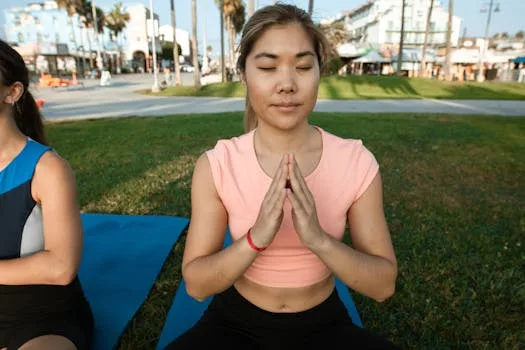
Takeaways
- Mindfulness can significantly reduce stress and anxiety.
- Incorporating simple techniques into your daily routine can lead to lasting changes in mental well-being.
- Regular practice enhances self-awareness and promotes emotional health.
Mindfulness Techniques for Everyday Stress Relief

Understanding Mindfulness

The Science Behind Mindfulness
Research has shown that mindfulness practices can lead to significant improvements in mental health. Studies indicate that mindfulness can reduce symptoms of anxiety and depression, enhance emotional regulation, and improve focus and concentration. By engaging in mindfulness, individuals often report feeling more in control and less overwhelmed by their thoughts and surroundings.
Simple Mindfulness Techniques for Stress Relief
1. Mindful Breathing

- Find a comfortable seated position.
- Close your eyes or lower your gaze.
- Take a deep breath in through your nose, allowing your abdomen to expand.
- Exhale slowly through your mouth, noticing the sensation of your breath.
- Continue this process for several minutes, redirecting your focus to your breath whenever your mind wanders.
Mindful breathing helps calm the nervous system and can be done anywhere, making it a perfect tool for stress relief throughout the day.
2. Body Scan Meditation
The body scan meditation is a powerful mindfulness technique that encourages you to connect with your body and release tension. Here’s how to practice it:
- Lie down comfortably on your back with your arms at your sides.
- Close your eyes and take a few deep breaths.
- Begin by focusing on your toes, noticing any sensations, tension, or discomfort.
- Gradually move your attention up your body, through your feet, legs, and up to your head.
- As you focus on each body part, consciously relax and release any tension you feel.
This technique not only promotes relaxation but also enhances body awareness, allowing you to identify stress areas in your body.
3. Mindful Walking
Mindful walking transforms a routine activity into a mindfulness practice. To practice mindful walking, try the following:
- Choose a quiet location where you can walk undisturbed.
- Begin to walk slowly, paying attention to the sensations in your feet as they make contact with the ground.
- Notice the rhythm of your breath as you walk.
- Observe your surroundings without judgment, taking in the sights, sounds, and smells.
This practice helps ground you in the present moment and can be especially refreshing during a stressful day.
4. Gratitude Journaling
Keeping a gratitude journal is a reflective mindfulness practice that can shift your focus from stressors to positive aspects of your life. To start journaling:
- Set aside a few minutes each day to write down three things you are grateful for.
- Reflect on why you are grateful for these things.
- Allow yourself to fully experience the feelings of gratitude associated with each item.
This practice encourages a positive mindset and can significantly reduce feelings of stress and anxiety over time.
5. Mindfulness Apps
In today’s digital age, there are numerous apps available that can guide you through mindfulness practices. Apps like Headspace, Calm, and Insight Timer offer a variety of meditation sessions, breathing exercises, and mindfulness reminders that can easily fit into your lifestyle. These resources can help you establish a consistent mindfulness practice, making it easier to manage stress effectively.
Incorporating Mindfulness into Daily Life
Incorporating mindfulness into your everyday life doesn’t have to be complicated. Here are some additional tips to help you maintain your mindfulness practice:
- Set reminders throughout the day to pause and take a few mindful breaths.
- Practice mindfulness during routine activities, such as eating or showering, by fully engaging your senses.
- Join a local mindfulness or meditation group for support and community.
- Be patient with yourself; mindfulness is a skill that takes time to develop.
By integrating these techniques into your daily routine, you can cultivate a more mindful lifestyle that reduces stress and enhances your overall well-being. Each moment spent practicing mindfulness is a step towards a more balanced and peaceful life.




